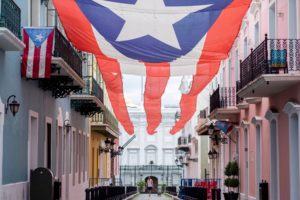
A newly revived White House Puerto Rico task force will focus on advancing and rebuilding the island after Hurricanes Maria and Irma, last year’s earthquakes, and the COVID-19 pandemic instead of joining the congressional debate over Puerto Rico’s political status.
Gretchen Sierra-Zorita, the White House’s associate director for Puerto Rico and the territories stated, “We don’t have jurisdiction on status, but we do have jurisdiction on the billions of dollars that have gone to the island. And there’s a real concern that these dollars might not be spent in a way that would make a real difference.”
The federal government has granted more than $65 billion in recovery funds to Puerto Rico however, communities on the island have only received close to $21 billion. More of the funds have been allocated to the Federal Emergency Management Agency and Departments of Education and Housing and Urban Development.
Earlier this week, the White House Working Group on Puerto Rico held its first meeting. It was attended by a significant number of officials, including 10 members of President Biden’s Cabinet and 4 deputy agency secretaries.
In a statement, the White House said that “Investing in the long-term resilience of the island and its infrastructure to ensure communities can withstand future disasters is a top priority for the task force.” But when they consider Puerto Rico’s ability to withstand future disasters, officials are also considering the impacts of the island’s decades long fiscal crisis, which was triggered when U.S. laws excluded Puerto Rico from the federal bankruptcy code.
The decision blocked the island from resolving its $72 billion debt crisis through Chapter 9 and prompted Congress to pass the PROMESA law in 2016 to create a federally appointed fiscal board responsible for reconstructing the debt.
“If you teach the island how to manage these huge amounts of funds and how to deliver these services, you’re building capacity. That capacity can be transferred to other areas of government. The notion, to some extent, is to cut the dependency, not because we don’t want to help, but because people don’t want to be dependent. They want to manage their own affairs, and they want to be resourceful on their own” said Sierra- Zorita.

Recent Comments